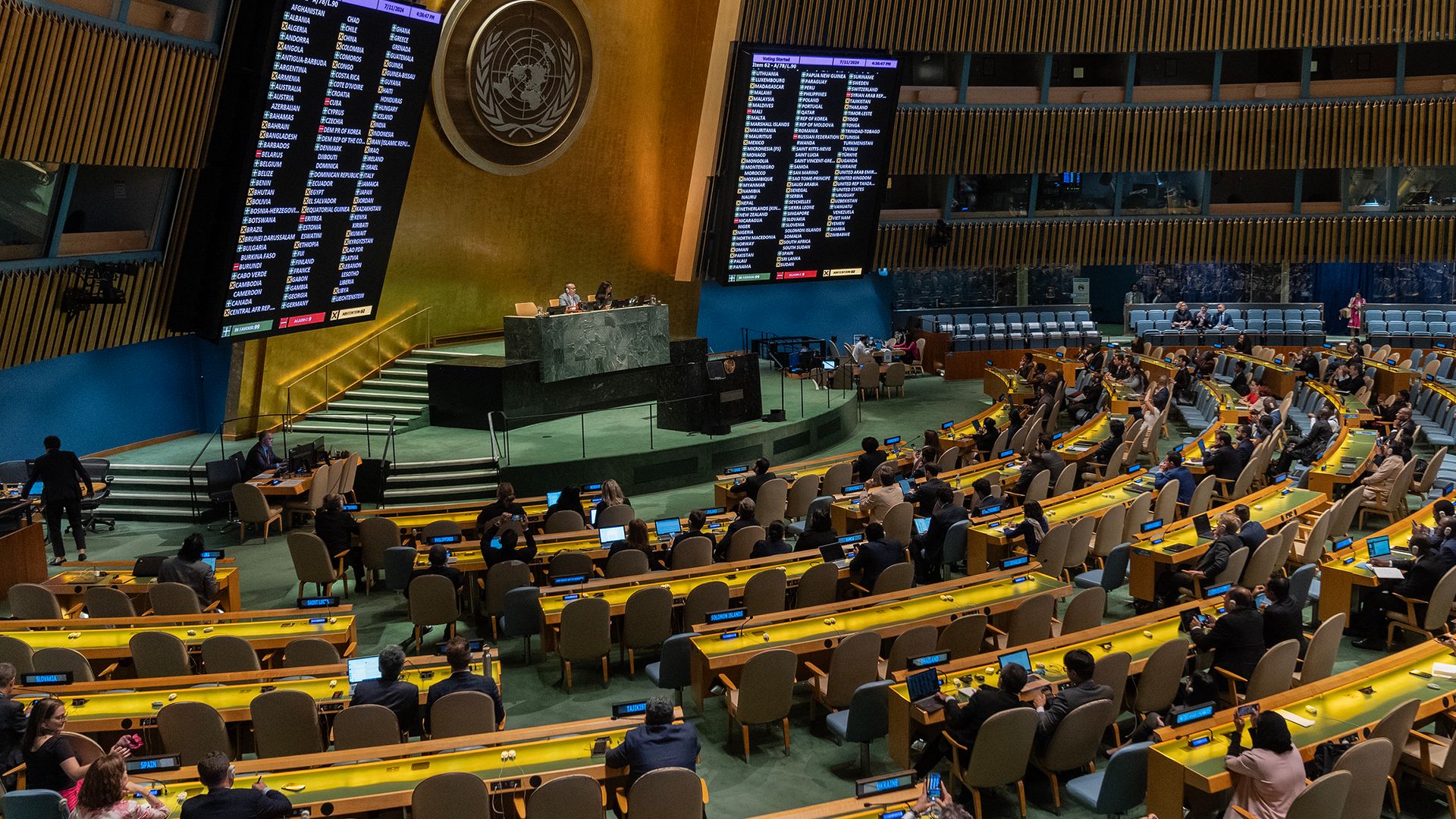
[RAY BOGAN]
Five Republican Senators are calling on President Biden to deny visas to the leaders of Iran, Cuba and Venezuela for September’s UN General Assembly. The senators called the presidents of those countries a threat to U.S. national security.
“The United States must prevent the UN General Assembly from becoming a stage for the most evil leaders on Earth to gain credibility and promote their dangerous views,” Sens. Scott, R-Fla., Rubio, R-Fla., Ernst, R-Iowa, Cotton, R-Ark., and Mullin, R-Okla., told President Biden In a letter
The U.N. General Assembly is a gathering of all 193 member countries. Every nation has an equal vote as they set the U.N.’s budget, appoint the Secretary-General, and select non-permanent members of the security council. The heads of each country are also given time to address the body and the world.
The senators said the U.S. has historically taken “principled stands” against welcoming foreign leaders who could “threaten our values and interests.” They gave the examples of President Reagan denying a visa to Yasser Arafat in 1988 due to his support for state-sponsored terrorism and President Trump’s denial of Iranian Foreign Minister Mohammad Javad Zarif in 2020.
The Senators said Cuban President Miguel Diaz-Canel is continuing the Castro dictatorship with brutal oppression, Iranian President Masoud Pezeshkian has vowed to continue targeting the U.S. and Israel, and Venezuelan President Nicolas Maduro has committed human rights abuses and caused millions to flee the nation, many to America.
“Denying entry to the dictators and madmen would reaffirm our commitment to upholding the principles of freedom and democracy while sending a clear message that we stand firmly against oppressive regimes,” the Senators wrote.
Maduro has not attended the General Assembly in a number of years; the country has been represented by a minister. Maduro addressed the body remotely in 2021. Díaz-Canel attended and made an address last year. Pezeshkian was just sworn in in July. His predecessor Ebrahim Raisi addressed the assembly in 2023. Raisi











